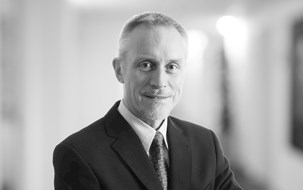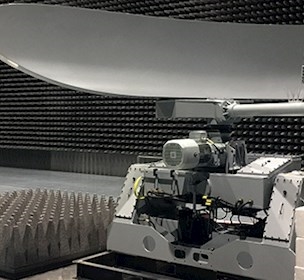Danish universities and GTS institutes collaborate on defence technology development
The NFC - National Defence Technology Centre is an outstretched hand to industry and the Danish Armed Forces with a call to cooperate on defence technological development in order to safeguard Danish values.
When Russia launched its attack on Ukraine on 24 February 2022, Europe's security situation was suddenly transformed.
The government and a broad majority of the parties in Parliament quickly saw the writing on the wall when, in March of the same year, they reached a national compromise on Danish security policy that paved the way to shift gears with massive investments in the Danish Armed Forces. Since then, these ambitions have been confirmed in the new government platform.
The universities and the government approved research and technology organisations (GTS institutes) also woke up to a new everyday life.
"With the security situation the world is facing, the conditions for peace and coexistence on the European continent have changed. The situation calls for us to make a clear statement," explains Dean Mogens Rysholt Poulsen, Faculty of Engineering and Science, Aalborg University.
"We want to make our knowledge and skills available to defend our society and its fundamental values. We’ve already come a long way, including with research that initially may be thought of in a civilian context, but which can also be used in defence in today's hybrid warfare with sabotage, influence campaigns, cyberattacks, actual military operations and so on," he adds.
FORCE Technology looks forward to the strengthened collaboration within NFC:
Since the autumn of 2022, we have been in dialogue with several partners about how we can best support the Danish defense industry with technology and innovation. For us as GTS, it is especially important to support the launch of new technology to the market faster and safely, and assist the small and medium-sized companies in Denmark to reap the technological potential for the benefit of the entire defense industry.Hanne Christensen, CEO / FORCE Technology
Unheard of assembly of expertise
As a consequence of this ambition, the universities and GTS institutes have formed the NFC as a framework for strengthened collaboration with the Danish Armed Forces and industry.
"This is the first time the Danish research and development sector has partnered with such a clear organisation and distribution of roles in close dialogue with industry and the Danish Armed Forces. With the NFC, we can increase the pace of development of necessary defence technology and ensure active utilisation of Denmark's special positions of strength", says Rasmus Larsen, Pro-rector of the Technical University of Denmark and chair of the NFC steering committee.
These strengths include space and quantum technology, cybersecurity, green fuels, advanced drones, electronic systems, information technology, impact campaigns, robotics and satellite-based systems.
Utilising these areas of expertise requires political support, says Mogens Rysholt Poulsen:
"We call on the newly elected parliamentary politicians to make the NFC an important part of developing Danish defence by investing the necessary funds to ensure long-term, strategic and knowledge based development in the area. The potential is great, but it requires political support to get started," he says.
The NFC is specifically asking the Danish Parliament to earmark at least two percent of the two percent of GDP to be allocated to the Danish Armed Forces for research and development in the long term.


